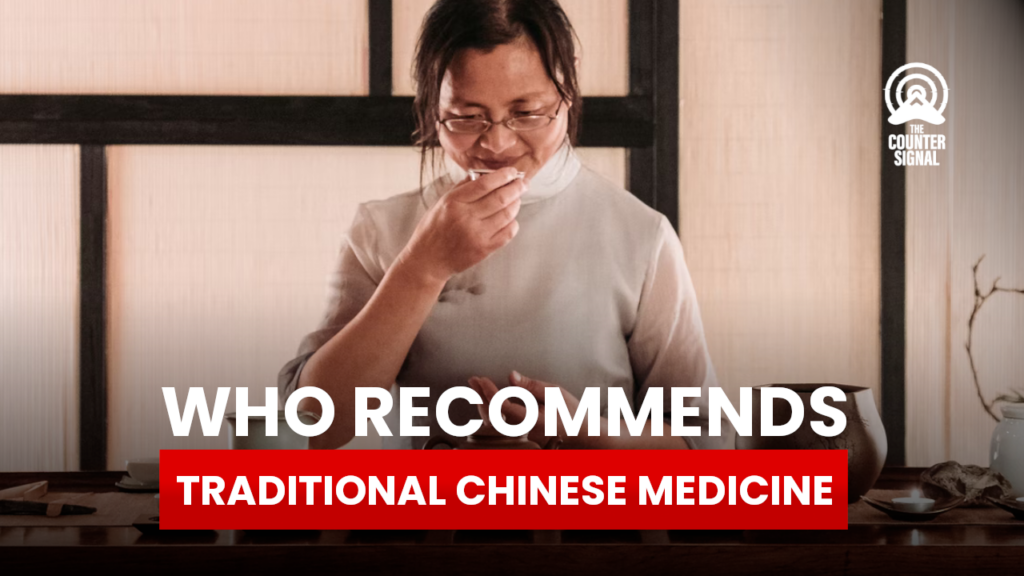The World Health Organization (WHO) is promoting “traditional Chinese medicine” as a potential way to manage COVID-19.

A WHO panel that convened recently to study its benefits released a report that found the folk healing practice was a good way to reduce the progression of COVID-19 cases.
“Although the trials involved different settings, the data suggested that TCM was both safe and beneficial when combined with conventional antiviral medicine,” reads the report.
In China, traditional Chinese medicine is already a government-approved way to treat the virus. Hong Kong officials recently requested that Chinese communist officials send “specialists” in the field to treat their citizens.
Treatments usually involve medicines like Lianhua Qingwen, Jinhua Qinggan, and Xuebijing made up of various traditional herbs like apricot kernels, rhubarb, and honeysuckle.
WHO researchers concluded that the practice “was associated with a substantially lower risk of in-hospital mortality, without extra risk of acute liver injury or acute kidney injury among patients hospitalized with Covid-19”.
In the past, the WHO has advised against using other COVID-19 treatment methods like ivermectin.
Moreover, in countries like Canada, leaders have taken a ‘vaccine-or-bust’ approach to the virus, arguing, with dubious evidence, that early treatment through conventional means isn’t a good substitute for mass vaccination campaigns that include discriminatory measures like health-based passports.
Traditional Chinese medicine is rooted in ancient Chinese medical texts written between 202BC and 220AD.
Earlier this year, the country’s National Administration of Traditional Chinese Medicine delivered a report to the WHO’s head Tedros Adhanom Ghebreyesus who said he received the study “with delight.”
This should be unsurprising as the WHO has been routinely criticized for its close association with the Chinese regime.











